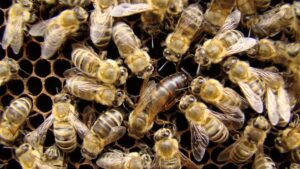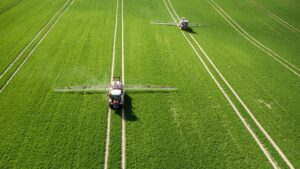Wageningen Environmental Research (WENR) has been awarded a pilot project on citizen science: an investigation for pesticides in apicultural (bee cultural) products. The project with a total sum of 1.5 million euros will focus on the development of an internationally standardized protocol for environmental monitoring of pesticide use through honeybees.
A consortium comprising sixteen partners from all over Europe combines expertise ranging from pesticide analysis in bee matrices, pollen analysis using molecular techniques, bee keeping, citizen science, extension officers and landscape modelling expertise. For the next 2.5 years of the project, researchers Ivo Roessink and Hans Baveco of Wageningen Environmental Research will be responsible for the modelling of honeybee foraging in the different landscapes.
“The general objective of our INSIGNIA project is to develop the most easy, quick, efficient, if possible cheap, robust and non-invasive monitoring protocol,” says Ivo Roessink. “We will do this in a pilot study on best practices for a European wide monitoring program with honeybee colonies. We’ll study pesticide use and exposure of honeybees and investigation of pollen food sources. We will do this in a citizen science set-up, in order to give valuable information on food sources of honeybees and the presence of legal or illegal pesticides used. The will develop a protocol to be used by policy makers to evaluate and, in the long term, protect the health of the public.”
Increasing concerns
Honeybees are regarded as one of the best bio-indicators due to their sensitivity to chemicals, their dependence on the environment and the use of their products both for food and medicine. The large quantities of pesticides used in modern intensive agriculture leads to increasing concerns about the public health and especially of more sensitive sub-populations (e.g. elderly, children, agriculturists, pregnant women, and sick people). There is a high concern also for the possible contamination of bee food sources existing away from cultivated crops and orchards, due to the linkage of pesticides in soil and water. Ivo Roessink: “A well-designed pesticide monitoring program can give valuable information on amounts of residues, and regions of greater concern as well as sources of products contamination as honeybee products as used as both food and medicine. It will also identify the extent of use of unauthorised plant protection chemicals or veterinary medicines as well as the correct use of recommended dosage.”
Source: Wageningen Environmental Research












